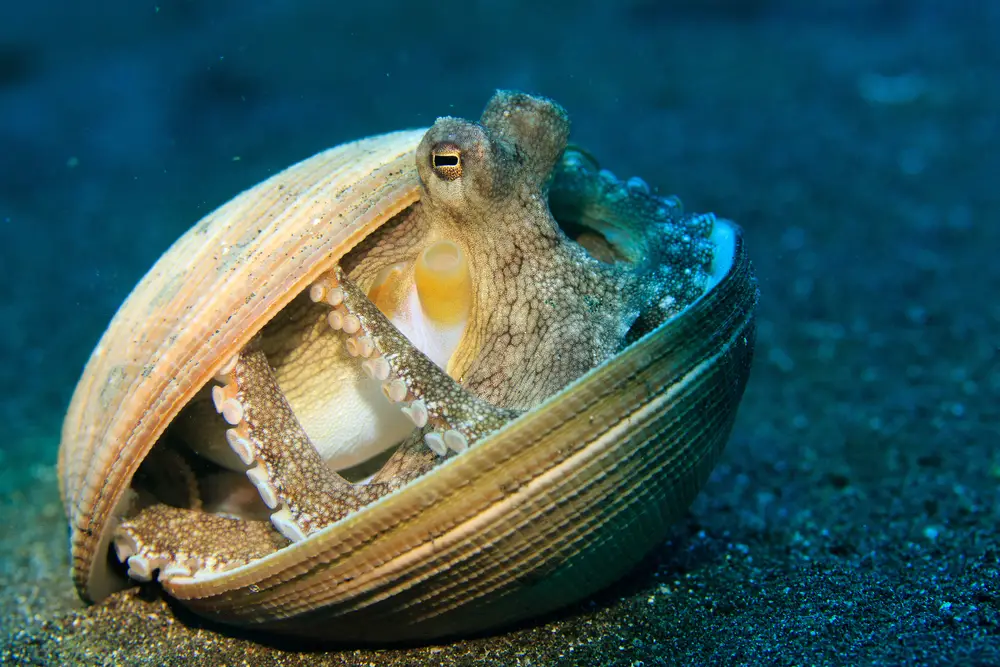There’s no denying it—octopuses are some of the most fascinating creatures in the ocean. With their incredible intelligence and problem-solving skills, they often leave us humans in awe. Unlike many other marine animals, they seem to have an edge when it comes to smarts. If you’ve ever wanted to dive into the brains of these eight-armed wonders, you’re in the right place. Let’s explore 13 fascinating ways octopuses outsmart just about every other animal.
1. Master Of Disguise

Every octopus has a built-in camouflage system that would put chameleons to shame. Their skin contains specialized cells called chromatophores, which allow them to change color and texture almost instantly. According to marine biologist Dr. Roger Hanlon, this rapid transformation helps them blend into their surroundings flawlessly, avoiding predators and surprising prey. Not only can they match colors, but they can also mimic the textures of their environment, such as rocks or coral. It’s like having a magic cloak that lets them disappear whenever danger lurks.
What’s truly amazing is their ability to mimic other sea creatures. By adjusting their body shape and behavior, octopuses can imitate lionfish, flatfish, or even sea snakes. This kind of impersonation is not just for fun; it’s a survival tactic. By imitating more dangerous creatures, they can fend off predators or sneak up on prey. The level of cunning involved is truly impressive, revealing just how resourceful these animals are.
2. Problem Solvers
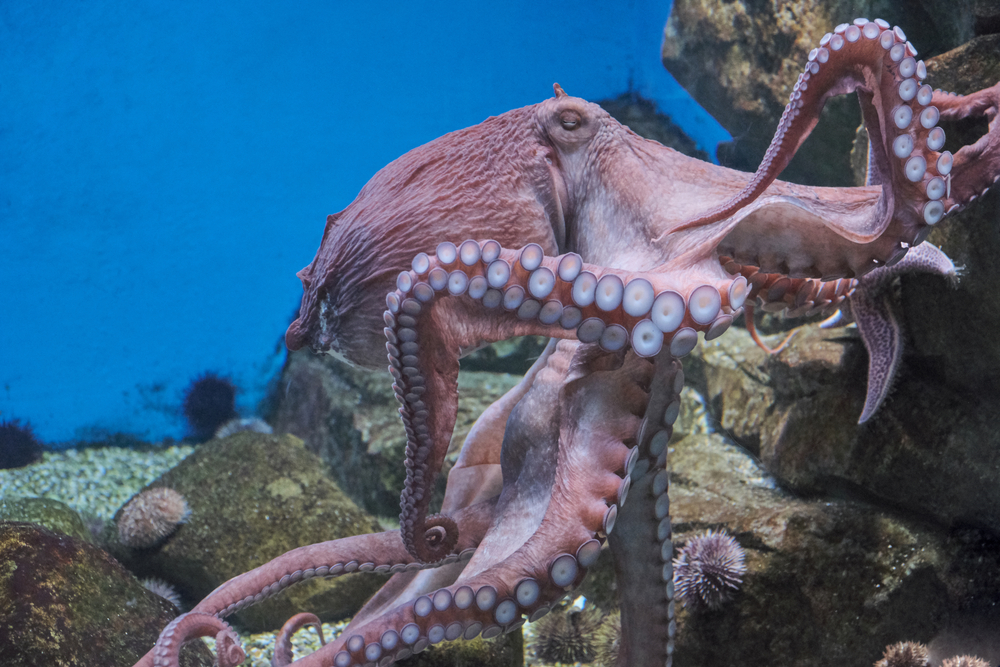
Octopuses have an impressive knack for solving complex problems, often leaving researchers scratching their heads. When it comes to cracking puzzles or navigating mazes, these creatures demonstrate a level of intelligence rarely seen in the animal kingdom. They’ve been known to unscrew jar lids to access food inside, a task that requires both dexterity and brainpower. Each of their eight arms can work independently, allowing them to manipulate objects with remarkable precision.
Their problem-solving skills aren’t just limited to lab experiments. In the wild, octopuses use their ingenuity to hunt and defend themselves. For instance, they’ve been observed using rocks and shells as tools to build shelters or block cave entrances. This ability to use objects in their environment creatively shows a level of cognitive function that rivals some mammals. It’s like they’re playing chess while their prey and predators are stuck on checkers.
3. Escape Artists
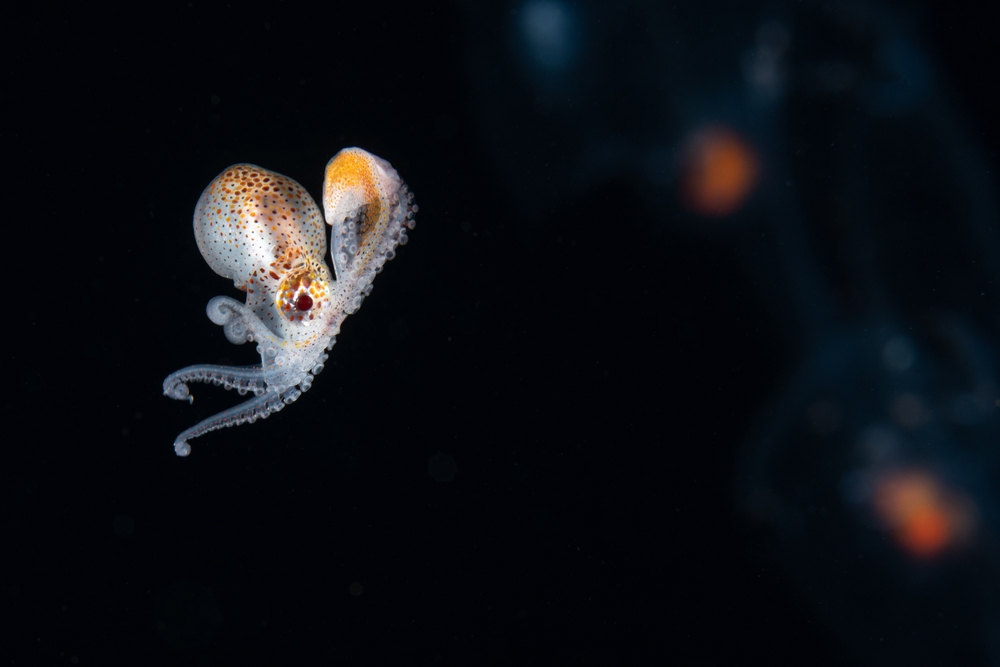
If you think Houdini was a master of escape, you haven’t met an octopus. These slippery creatures are incredibly adept at freeing themselves from all sorts of enclosures. According to a study by the renowned cephalopod researcher Dr. Jennifer Mather, octopuses have been known to squeeze out of aquarium tanks through impossibly small openings. Their boneless bodies allow them to compress and contort to get out of nearly any situation. This talent for escape has made them the bane of many a marine biologist’s existence.
The octopus’s ability to escape isn’t just about physical flexibility; it’s also about intelligence and determination. They can map out their surroundings and remember the layout to find the quickest exit. Even if you think you’ve secured them, they’ll find a way to plot their great escape. For aquarists, keeping an octopus contained becomes a strategic game of cat and mouse—one that the octopus often wins. It’s a testament to their incredible brainpower and adaptability.
4. Tool Use And Innovation
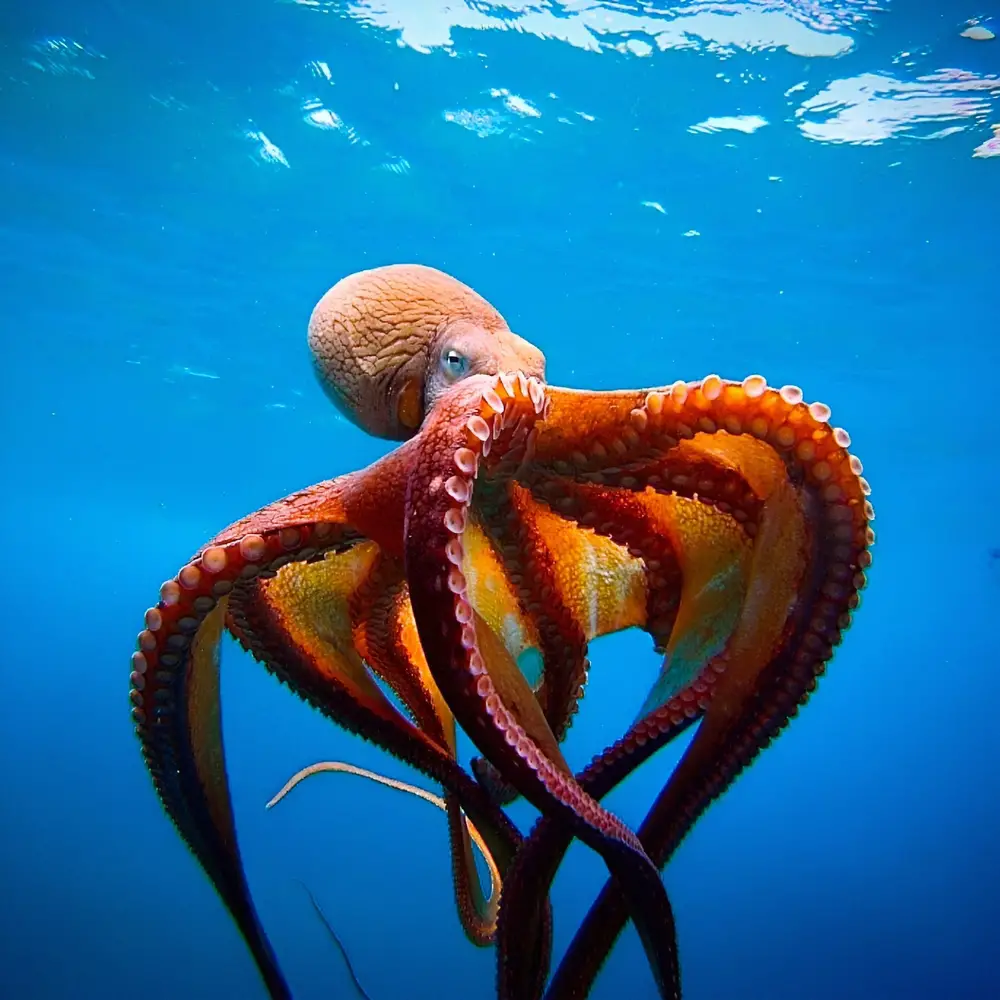
Octopuses are one of the few animal species known for using tools, a hallmark of intelligence. They’ve been seen collecting coconut shells and using them as portable shelters. This level of innovation shows foresight and an understanding of their environment—traits typically associated with more advanced creatures, like primates. It’s fascinating to see how they plan for the future, preparing for potential threats or the need for a quick hideout.
Interestingly, this behavior demonstrates not just intelligence but also a degree of planning and problem solving. In their natural habitat, octopuses adapt their tool use based on available resources, showing creativity and flexibility. This capacity for innovation suggests they’re not just reacting to their environment but actively engaging with it. Such behavior highlights their cognitive complexity and ability to learn and adapt. In the animal kingdom, this kind of adaptable problem-solving is a rare and remarkable trait.
5. Memory Masters
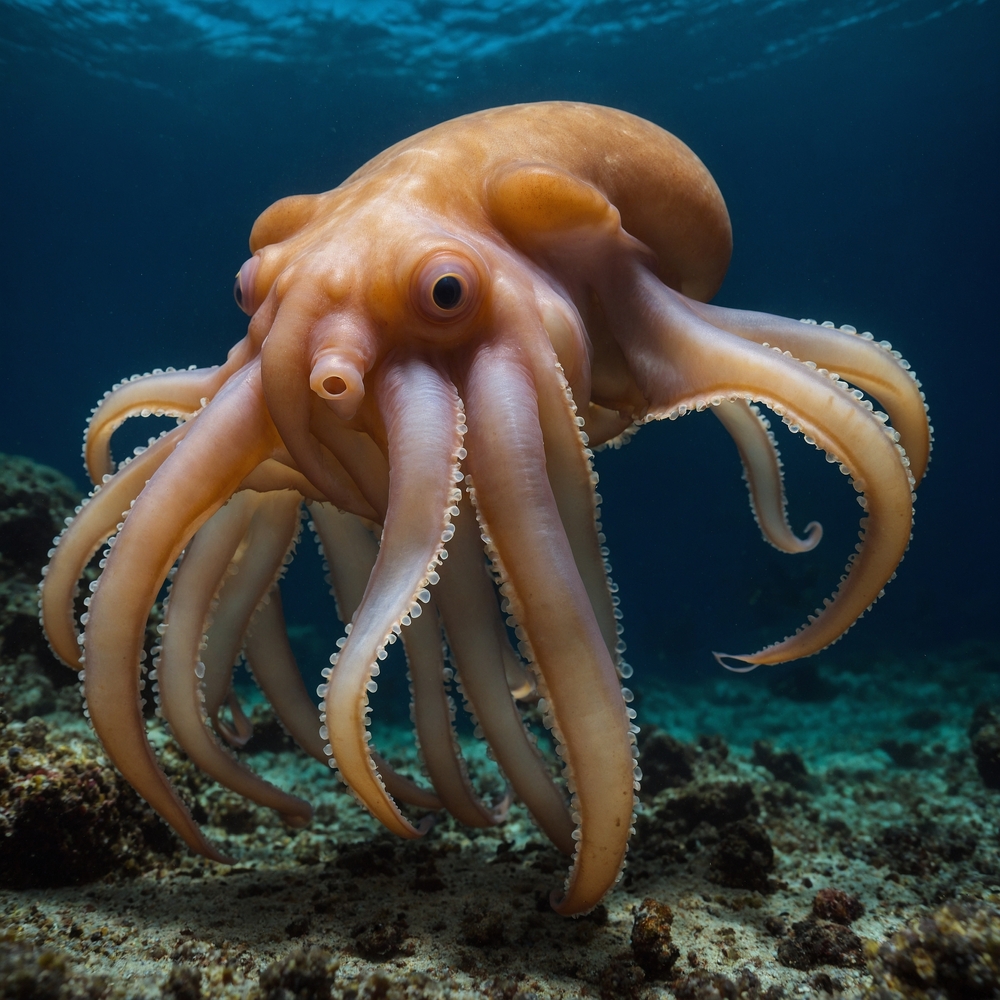
When it comes to memory, octopuses have it in spades. Their ability to remember past experiences plays a crucial role in their survival strategy. Research led by Dr. Jean Boal revealed that octopuses can recall solutions to problems they’ve encountered before, allowing them to navigate complex environments with ease. This long-term memory is essential for avoiding predators and locating food sources. It’s like they’ve got a built-in GPS, guiding them through the underwater world.
Not only do they remember solutions, but octopuses also learn from watching other octopuses. This observational learning allows them to pick up new skills and adapt their behaviors based on what they see. Such learning is a clear indication of their high level of cognitive functioning. In essence, octopuses are like the wise elders of the sea, using their memories to make informed decisions. Their memory capabilities are yet another reason why these creatures are so fascinating.
6. Complex Communication
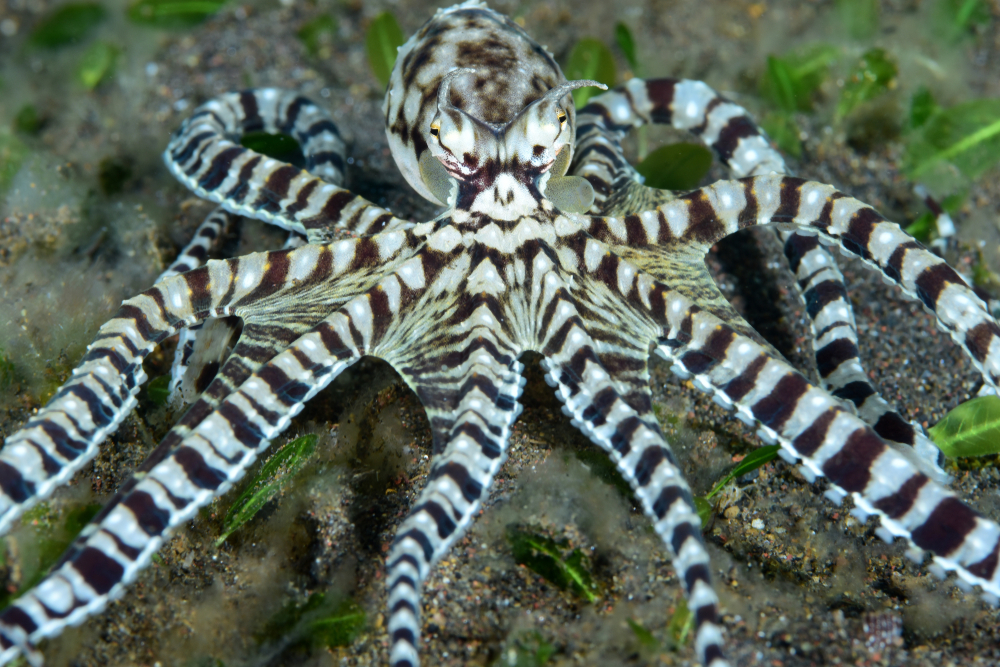
While octopuses don’t communicate vocally like humans, they’ve developed a sophisticated system of signaling. Through a complex combination of color changes, body patterns, and arm postures, they can convey a range of messages. This visual language allows them to signal warnings, express aggression, or even court potential mates. Each change in color or texture can have a specific meaning, depending on the context and audience.
The intricacies of their communication system demonstrate a high degree of social intelligence. Despite being largely solitary creatures, they can interact with others when necessary. This ability to communicate effectively in the vast, silent world of the ocean is crucial for survival. It allows them to avoid conflicts, find mates, and, at times, collaborate with other sea creatures. For an animal with no vocal cords, the octopus’s ability to “speak” is nothing short of extraordinary.
7. Quick Learners
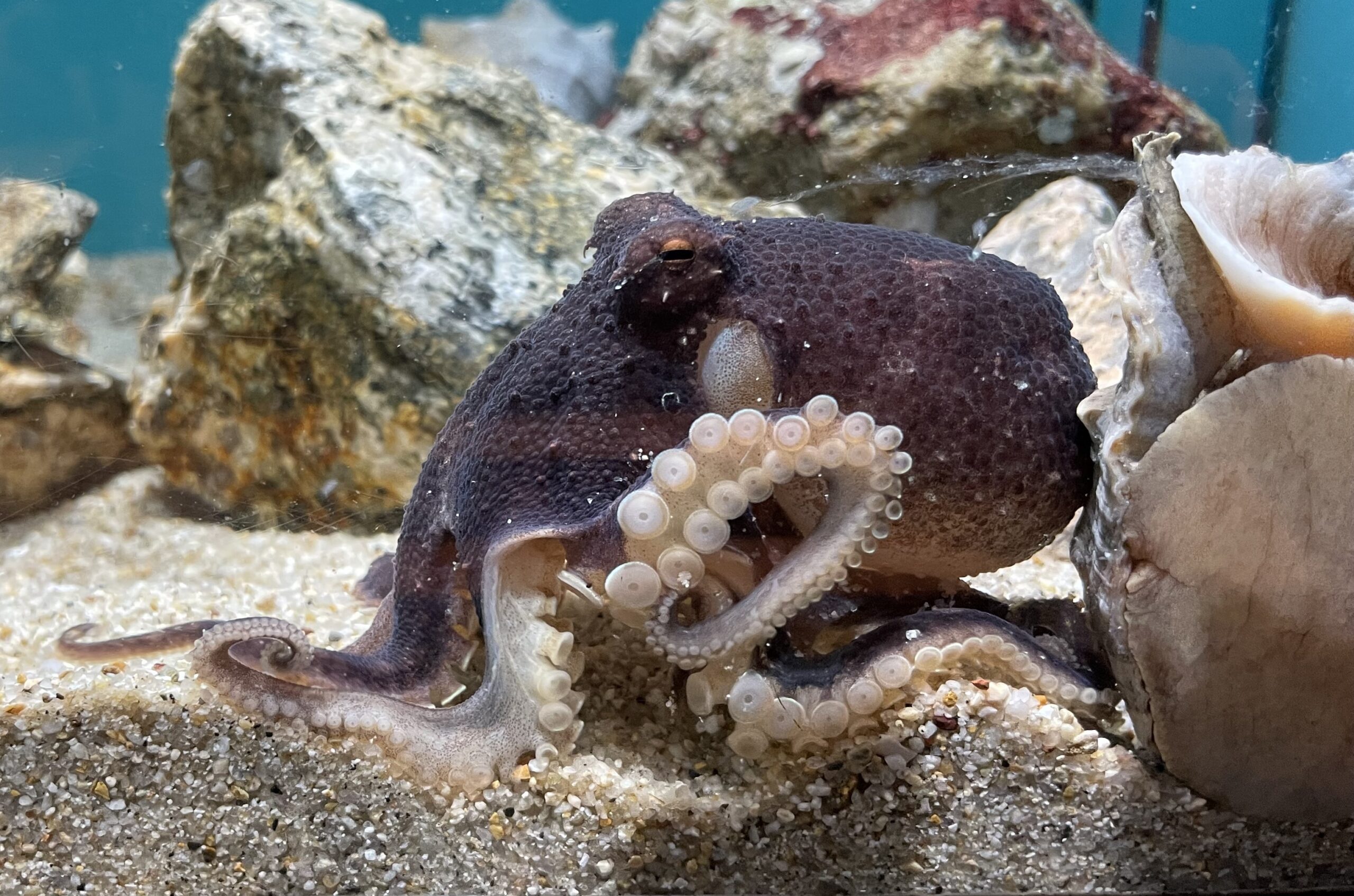
Octopuses can learn new skills and adapt to new environments with astonishing speed. Their ability to quickly understand and remember information sets them apart from many other animals. Octopuses can learn to associate specific shapes or colors with rewards, showcasing their capacity for complex learning. This quick learning is essential for survival in the ocean, where conditions and threats can change rapidly. It’s like they’re the valedictorians of the sea, acing every test nature throws at them.
The speed at which octopuses learn is complemented by their ability to apply this knowledge in practical ways. They don’t just memorize facts; they use what they learn to improve their chances of survival. Whether it’s figuring out how to access food or avoid predators, their learning is both dynamic and adaptive. This adaptability ensures that they’re always one step ahead of the game. It’s yet another reason why they’re considered one of the most intelligent creatures in the marine world.
8. Memory Of The Environment
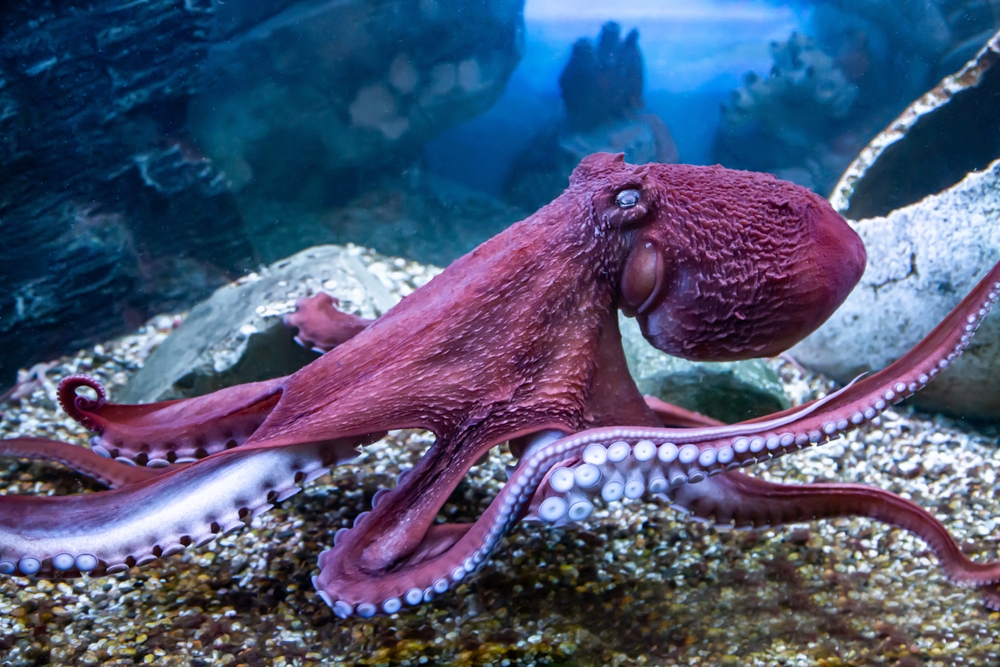
Octopuses have an incredible ability to remember details about their environment, which is crucial for their survival. They can recall the layout of their habitat and remember the locations of hiding spots and food sources. This spatial memory helps them navigate the often-complex underwater terrain with ease. It’s almost as if they have a mental map of their surroundings stored in their brains.
Their environmental memory goes beyond mere navigation. Octopuses also remember specific threats and know which areas to avoid. This ability to learn and remember the geography of their home environment allows them to maximize their efficiency when hunting or evading predators. Such spatial awareness highlights their intelligence and adaptability. It’s a skill that proves invaluable in the ever-changing landscape of the ocean.
9. Creativity In Problem Solving
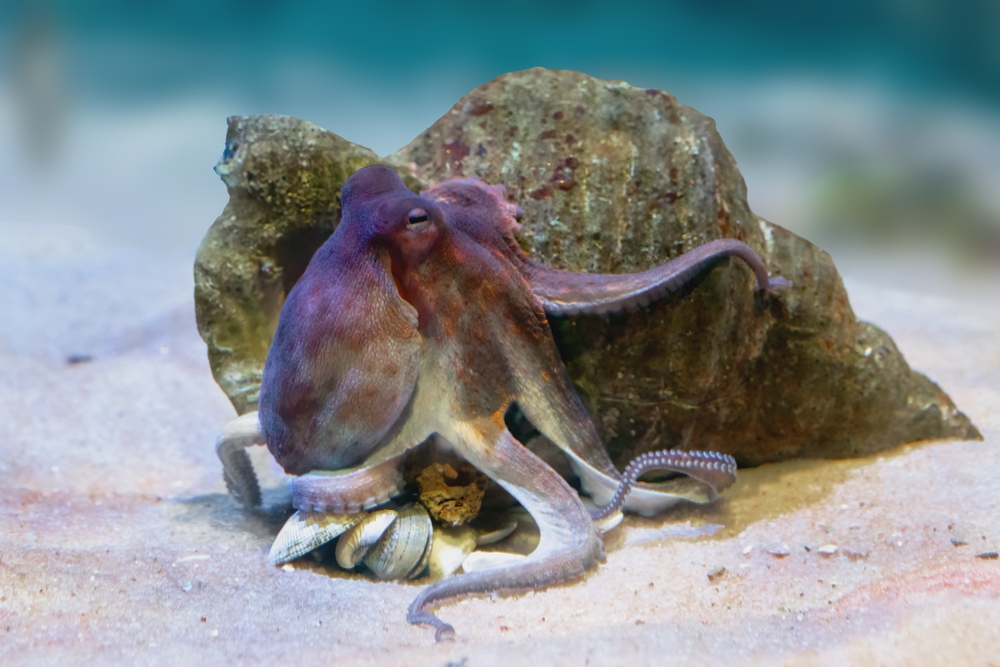
Octopuses are not only adept at solving problems but also bring a level of creativity to their solutions. Faced with a challenge, they often employ innovative strategies to overcome obstacles. This creativity is evident in their use of tools, navigation of complex environments, and ability to escape confinement. It seems there are a few problems they can’t solve with a bit of ingenuity.
Their creative problem-solving isn’t just for survival; it also showcases their cognitive flexibility. Octopuses are known to experiment with different approaches until they find one that works. This trial-and-error method is a hallmark of intelligent behavior, reflecting their willingness to adapt and learn from experience. Such creativity allows them to thrive in diverse environments, proving that they are not just creatures of instinct but thinkers as well. It’s a testament to the depth of their intelligence.
10. Strategic Planning
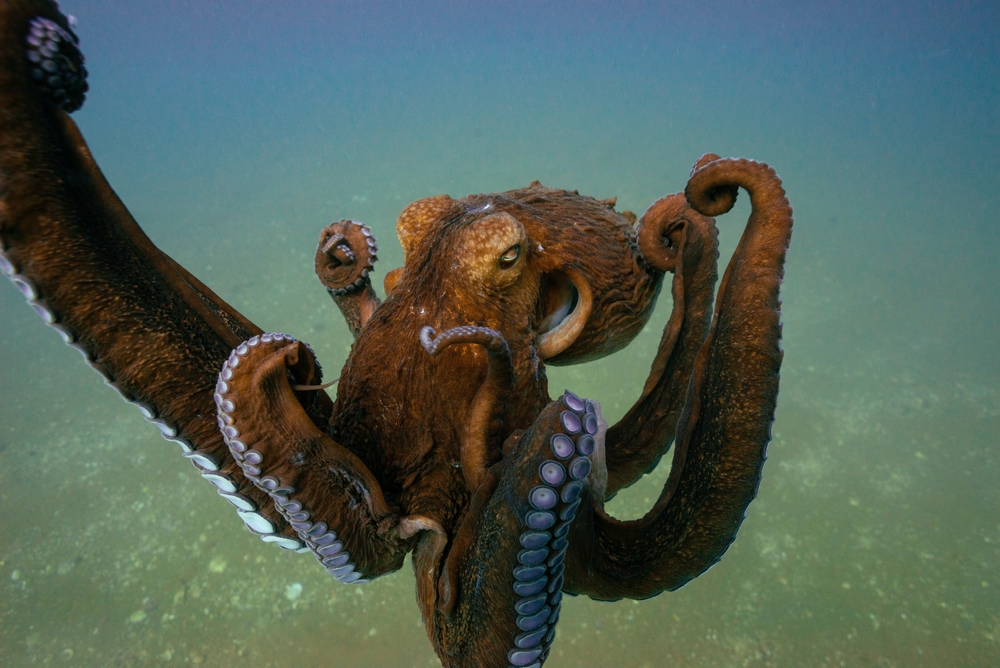
Octopuses are not just reactive; they’re proactive strategists as well. They often plan their actions in advance, considering multiple steps ahead. This strategic thinking is evident when hunting, as they carefully stalk prey and choose the right moment to strike. It’s like they’re playing a game of chess, always thinking several moves ahead.
Their ability to plan extends beyond hunting. Octopuses also strategize when building their homes or choosing escape routes. They evaluate potential threats and opportunities, making decisions that enhance their chances of survival. This forward-thinking approach is a clear indication of their advanced cognitive abilities. In a world full of uncertainties, their strategic planning skills give them a significant advantage.
11. Complex Social Interactions
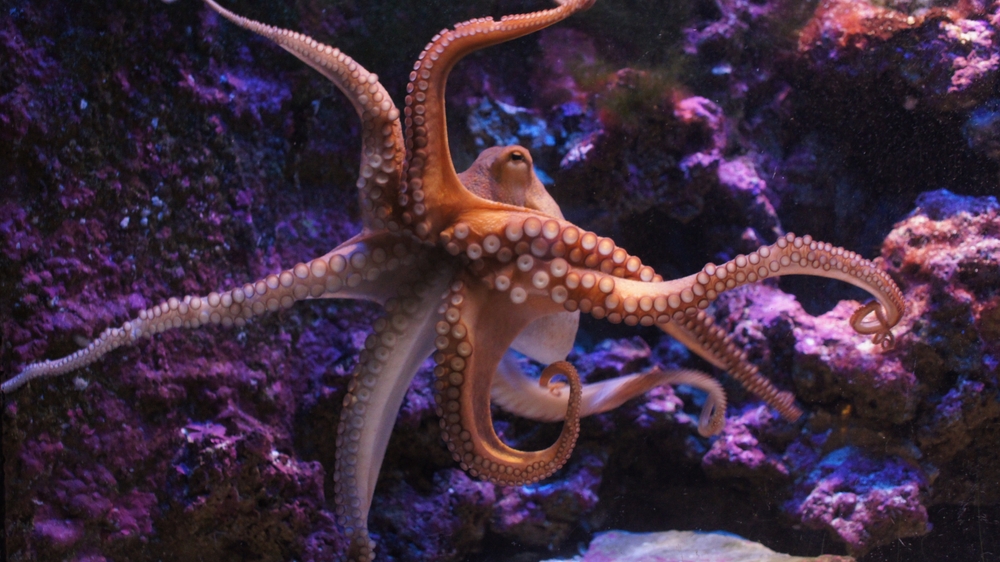
While octopuses are generally solitary, they do engage in complex social interactions when necessary. These interactions require a high level of social intelligence and adaptability. From mating rituals to territorial disputes, octopuses display a range of behaviors that facilitate communication and cooperation. Their ability to interpret and respond to social cues is quite sophisticated.
This social intelligence is not just about survival; it also highlights their emotional complexity. Octopuses can form bonds and recognize individuals, suggesting a depth of emotion not commonly associated with marine life. Such social awareness allows them to navigate the complexities of their underwater world effectively. It’s another example of how octopuses are much more than simple creatures of the sea.
12. Risk Assessment
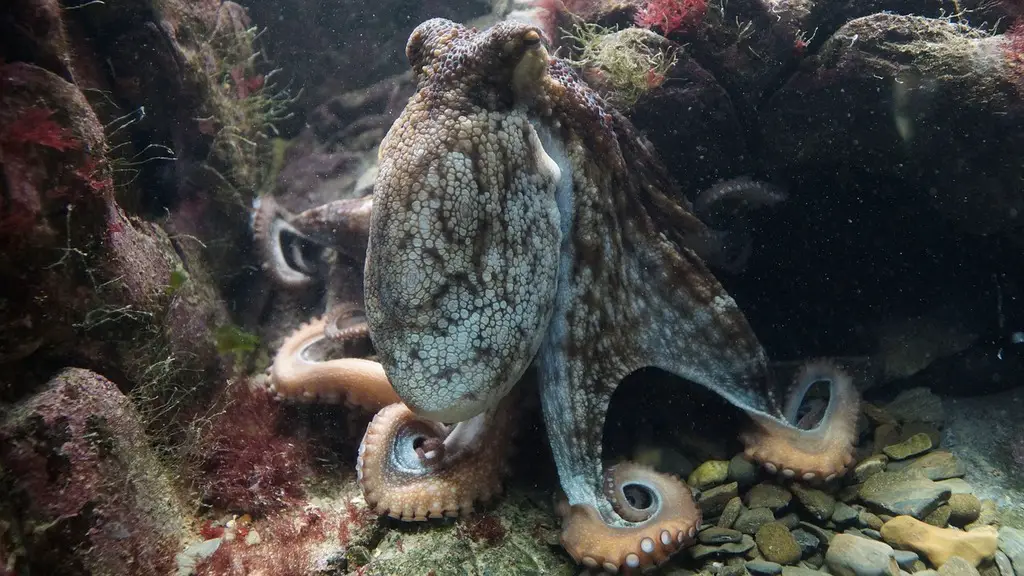
Octopuses are skilled at assessing risks and making calculated decisions. They weigh the potential benefits and dangers before committing to a course of action. This careful consideration is crucial for their survival in the unpredictable ocean environment. Whether deciding to flee from a predator or approach a potential meal, their decisions are deliberate and well-thought-out.
Their ability to assess risks reflects a high level of cognitive functioning. Octopuses are not impulsive; they take the time to evaluate their options and choose the best path forward. This calculated approach allows them to avoid unnecessary dangers and seize opportunities for growth and survival. It’s a testament to their intelligence and adaptability in a world where every decision counts.
13. Emotional Complexity
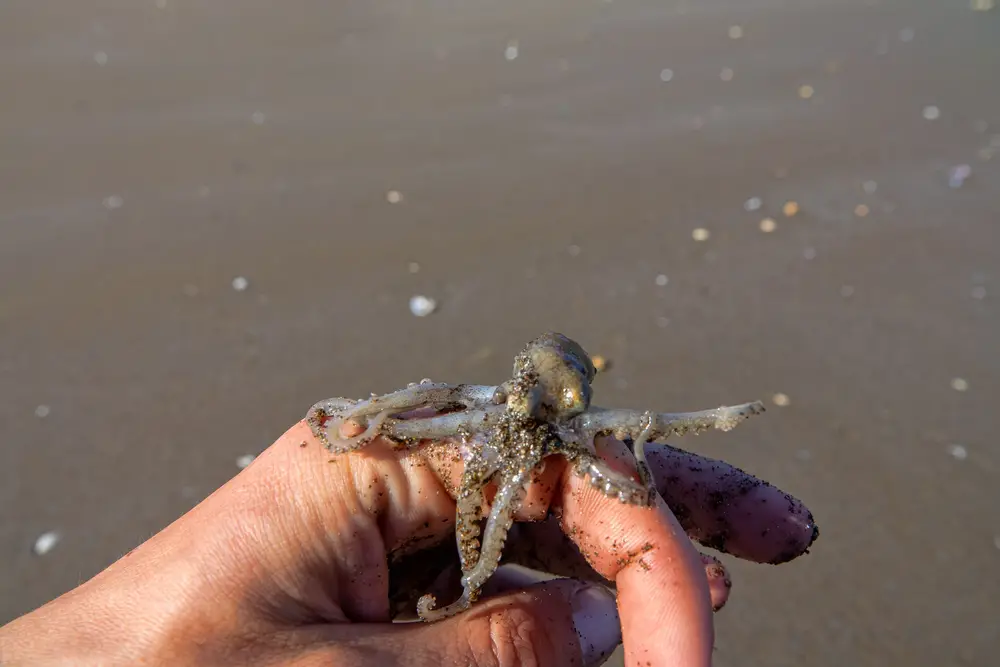
Octopuses exhibit a range of emotions, revealing a level of emotional complexity that is rare among invertebrates. These emotions can influence their behavior, from how they interact with others to how they respond to threats. Scientists have observed octopuses displaying behaviors that suggest curiosity, playfulness, and even frustration. Such emotional depth adds another layer to their intelligence.
Their emotional complexity enables them to form connections and respond appropriately to their environment. This ability to experience and express emotions highlights their cognitive and social sophistication. Octopuses are not just reacting to stimuli; they’re engaging with their world on multiple levels. It’s yet another reason why these fascinating creatures continue to captivate our imaginations.

